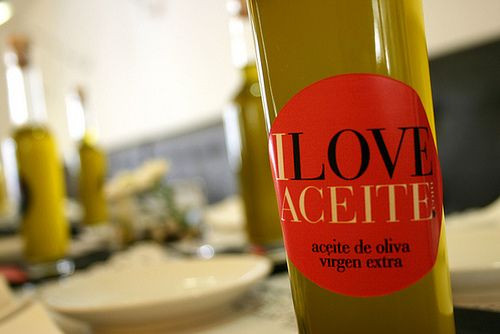Extra Virgin Olive Oil Loses Health Benefits When Heated, So Save Your Money

Long championed as the pinnacle of healthy fat sources — particularly for its leading role in heart-healthy Mediterranean diets — extra virgin olive oil has enjoyed a place in many people's kitchen. However, research suggests that cooking with the premium oil can degrade its quality depending on the heat and length of cooking, which, ultimately, leads to a waste of money.
"Virgin olive oil consumption, as final seasoning or within cooked foods, is increasing worldwide, mainly due to its recognized nutritional benefits," wrote a group of researchers from the University of Porto, whose findings were published in the journal Food Research International. "However, different cooking practices, from common frying, to boiling and microwave cooking, undoubtedly modify the olive oil chemical profile."
Olive oil's health benefits derive from high concentrations of monounsaturated fat, which comprise about 70-80 percent of the oil's total fat. Due to its low smoking point, around 375 degrees Fahrenheit, olive oil's key phenols, which work as antioxidants to preserve heart health, begin to degrade at high heats.
This degradation has led researchers to recommend lower-cost oils for cooking and reserve olive oil for dressing and taste. Periodically incorporating olive oil into the food as it's being prepared can offset the compound's degradation, they added.
Scientifically, a number of things happen when a person cooks with olive oil. At a heat above its smoking point, olive oil's monounsaturated fatty acids (MUFA) break down. These nourishing substances face oxidation due to the oil's instability at high temperatures. Lower quality oils — meaning those that are more refined and thus having higher smoking points — tend to stabilize more efficiently than olive oil when heated.
In other words, when olive oil gets too hot, its health benefits degrade to the level of other oils, which can sustain hotter cooking environments but do not begin with the same benefits. It's for this reason that researchers advocate olive oil's use on the back end of a dish and not during its preparation.
"Olive oil performance under prolonged thermal processing is usually equal or superior to other refined vegetable oils," the researchers wrote. "However, as most of its bioactive components, including phenolic compounds, are gradually lost, it is economically advantageous to use lower olive oil grades and frequent replenishment under prolonged thermal processing."
This brings the olive oil problem back to its other downside: cost.
Depending on the brand and its espoused quality, extra virgin olive oil can cost anywhere from twice the price of canola oil to 10 times the price.
Keeping that in mind, olive oil's health benefits have been shown to prevent major biological and neurological problems, such as Alzheimer's disease, heart disease, and numerous cancers throughout the lungs, breast, respiratory tract, upper digestive tract, and to a lesser extent, lower digestive tract.
Accounting for these benefits are the oil's high concentration of essential fatty acids, such as omega-3 and -6.
So while the researchers concluded that "after a short heating period, most olive oil advantages, in comparison with other vegetable oils, are lost," the super food has still carved out a well-defined role in our diets. We may just have to splash it on our food slightly later than we're used to.
Source: Santos C, Cruz R, Cunha S, Casal S. Effect of cooking on olive oil quality attributes. Food Research International. 2013.



























